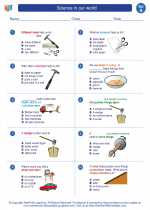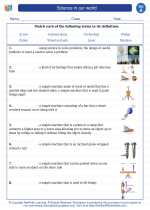Gynecology: An Overview
Gynecology is the branch of medicine that focuses on the female reproductive system, including the diagnosis and treatment of disorders and diseases. It covers a wide range of topics related to women's health, including menstruation, fertility, pregnancy, childbirth, and menopause.
Key Concepts in Gynecology
- Menstruation: The monthly shedding of the uterine lining, which is a normal part of the menstrual cycle.
- Reproductive Organs: Understanding the anatomy and function of the female reproductive organs, including the uterus, ovaries, fallopian tubes, and vagina.
- Contraception: Exploring different methods of birth control and their effectiveness.
- STIs and STDs: Learning about sexually transmitted infections and diseases, their symptoms, and prevention.
- Infertility: Understanding the causes of infertility and available treatment options.
- Pregnancy and Childbirth: Exploring the stages of pregnancy, prenatal care, labor, and delivery.
- Menopause: Understanding the physical and emotional changes that occur during menopause and available management options.
Study Guide for Gynecology
To effectively study gynecology, it's important to cover the following topics:
- Learn the anatomy and function of the female reproductive system, including the role of hormones in regulating the menstrual cycle.
- Understand the common gynecological conditions such as endometriosis, fibroids, ovarian cysts, and pelvic inflammatory disease.
- Explore the different contraceptive methods available and their mechanisms of action.
- Discuss the importance of regular gynecological check-ups and screenings, such as Pap smears and mammograms, in maintaining women's health.
- Understand the changes that occur during pregnancy, labor, and childbirth, including prenatal care and potential complications.
By studying these key concepts, students can gain a comprehensive understanding of gynecology and women's reproductive health.
.◂Science Worksheets and Study Guides First Grade. Science in our world
Study Guide Science in our world
Science in our world  Worksheet/Answer key
Worksheet/Answer key Science in our world
Science in our world  Worksheet/Answer key
Worksheet/Answer key Science in our world
Science in our world  Worksheet/Answer key
Worksheet/Answer key Science in our world
Science in our world  Vocabulary/Answer key
Vocabulary/Answer key Science in our world
Science in our world  Vocabulary/Answer key
Vocabulary/Answer key Science in our world
Science in our world 

 Worksheet/Answer key
Worksheet/Answer key
 Worksheet/Answer key
Worksheet/Answer key
 Worksheet/Answer key
Worksheet/Answer key
 Vocabulary/Answer key
Vocabulary/Answer key
 Vocabulary/Answer key
Vocabulary/Answer key

The resources above cover the following skills:
PHYSICAL SCIENCE (NGSS)
Waves and their Applications in Technologies for Information Transfer
Students who demonstrate understanding can:
Use tools and materials to design and build a device that uses light or sound to solve the problem of communicating over a distance.